IonQ has demonstrated remote ion-ion entanglement, a key milestone towards quantum networking and scaling its quantum systems.


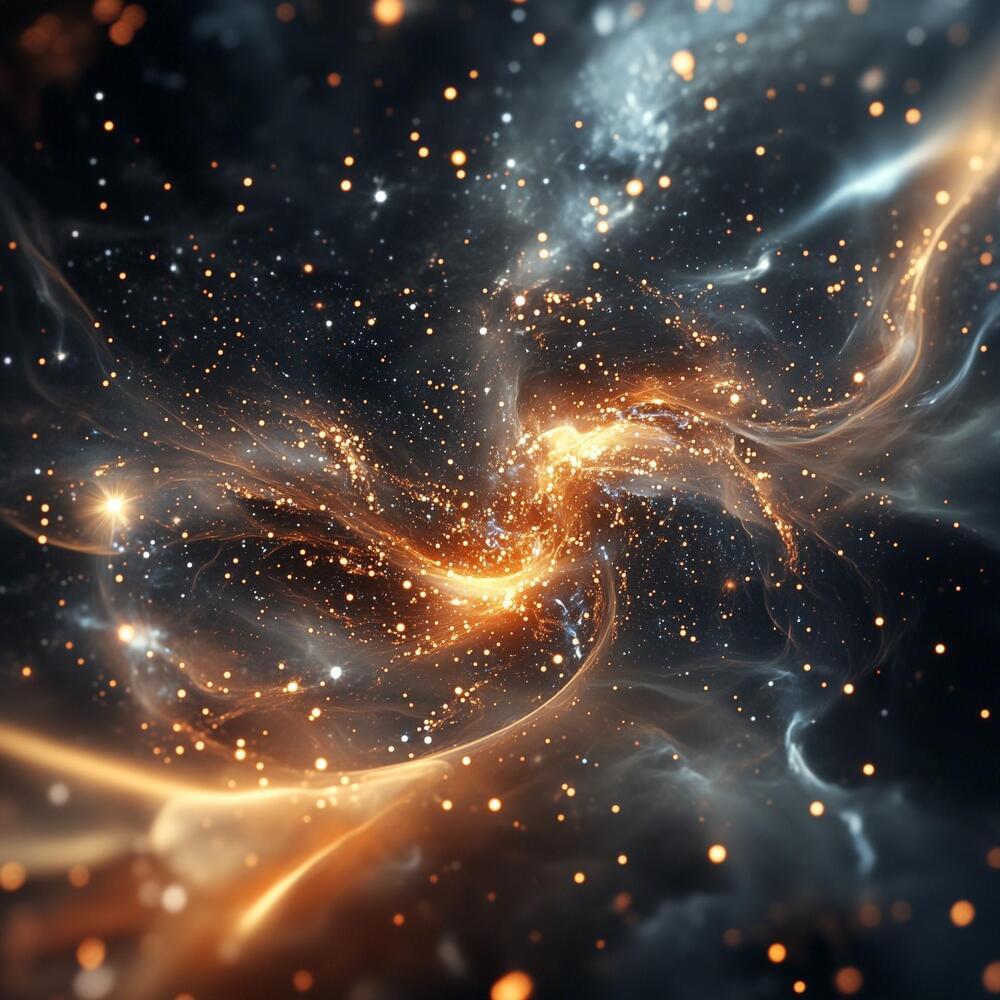
The foundation of this simulation, as described by the team, is a well-known cosmological model that describes the universe as expanding uniformly over time. The researchers modeled how a quantum field, initially in a vacuum state (meaning no particles are present), responds to this expansion. As spacetime stretches, the field’s oscillations mix in a process that can create particles where none previously existed. This phenomenon is captured by a transformation that relates the field’s behavior before and after the universe expands, showing how vibrations at different momenta become entangled, leading to particle creation.
To understand how many particles are generated, the researchers used a mathematical tool called the Bogoliubov transformation. This approach describes how the field’s vacuum state evolves into a state where particles can be detected. As the expansion rate increases, more particles are produced, aligning with predictions from quantum field theory. By running this simulation on IBM quantum computers, the team was able to estimate the number of particles created and observe how the quantum field behaves during the universe’s expansion, offering a new way to explore complex cosmological phenomena.
According to the team, the most notable result of the study was the ability to estimate the number of particles created as a function of the expansion rate of the universe. By running their quantum circuit on both simulators and IBM’s 127-qubit Eagle quantum processor, the researchers demonstrated that they could successfully simulate particle creation in a cosmological context. While the results were noisy—particularly for low expansion rates—the error mitigation techniques used helped bring the outcomes closer to theoretical predictions.
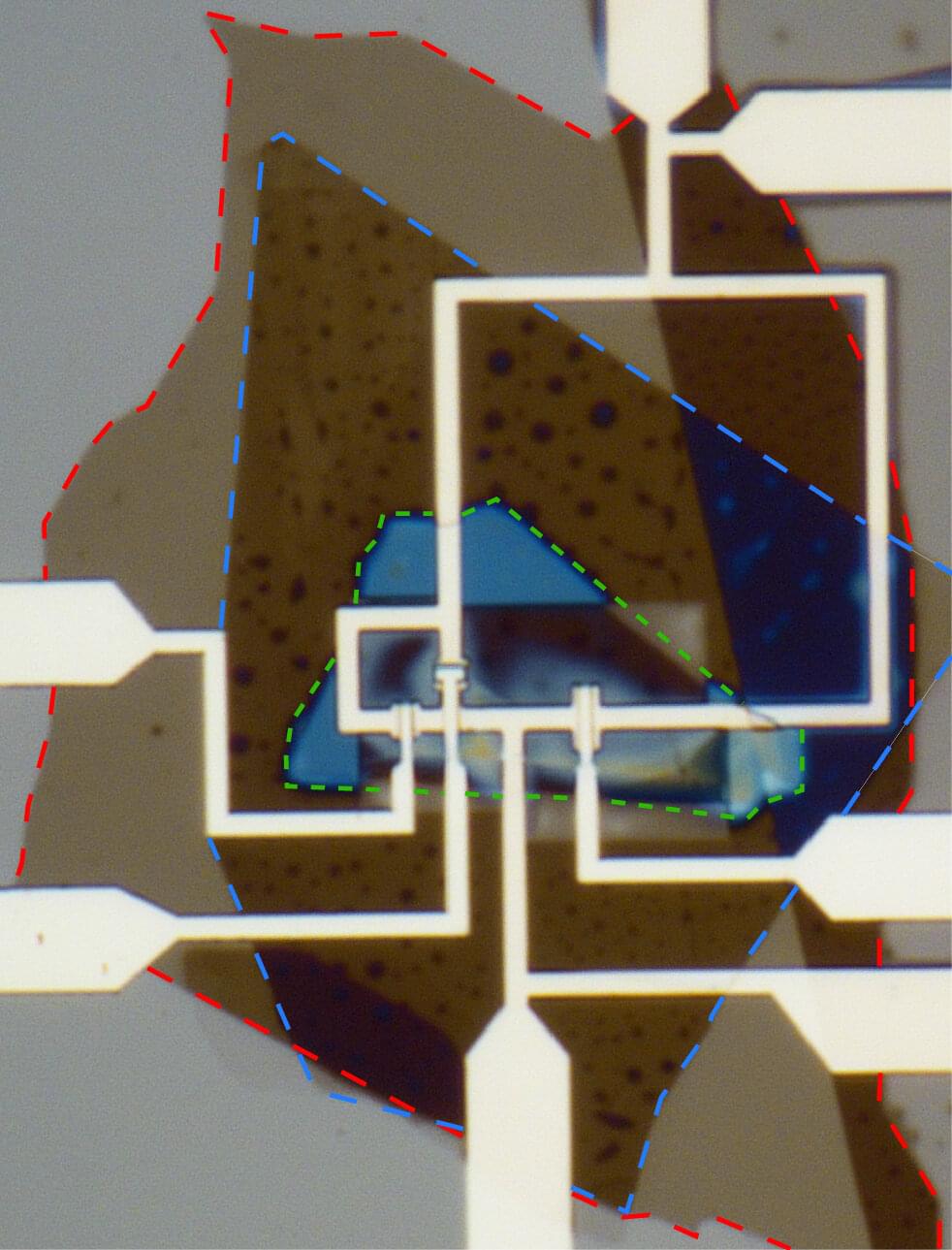
In recent years, quantum physicists and engineers have made significant strides toward the development of highly performing quantum computing systems. Realizing a quantum advantage over classical computing systems and enabling the stable operation of quantum devices, however, will require the development of new building blocks for these devices and other aspects underlying their correct functioning.
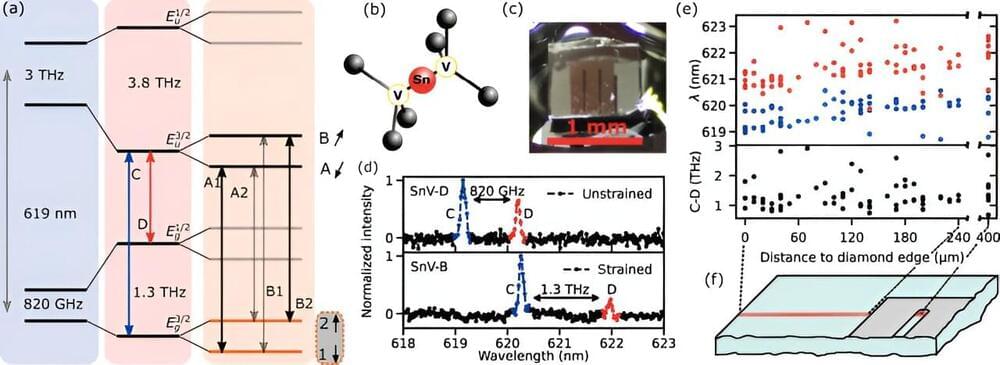
In a first for Germany, researchers at the Karlsruhe Institute of Technology (KIT) have shown how tin vacancies in diamonds can be precisely controlled using microwaves. These vacancies have special optical and magnetic properties and can be used as qubits, the smallest computational units for quantum computing and quantum communication. The results are an important step for the development of high-performance quantum computers and secure quantum communications networks.
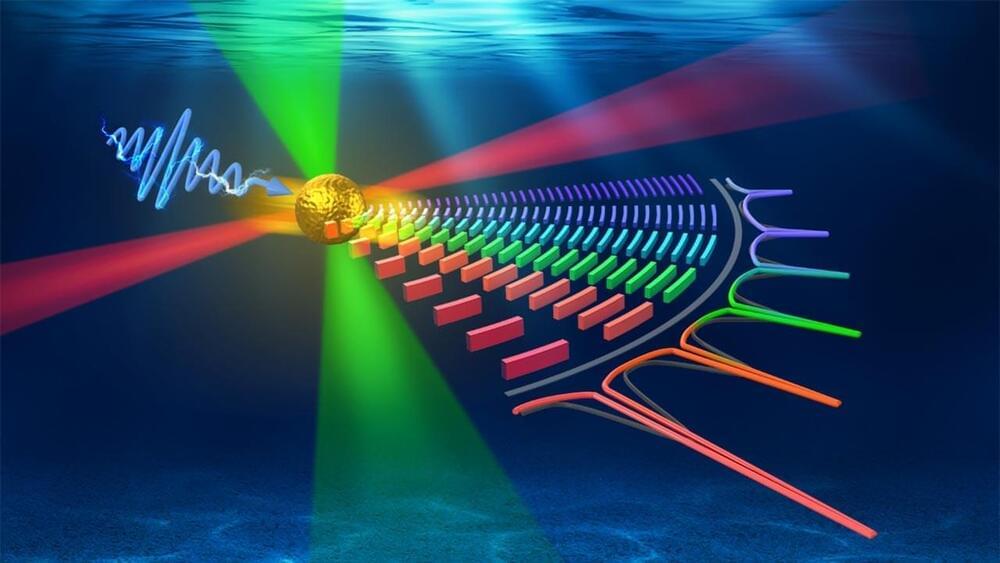
Recent advancements in phonon laser technology, which utilizes sound waves rather than light, show promising new applications in medical imaging and deep-sea exploration.
A novel technique enhances these lasers by stabilizing and strengthening the sound waves, allowing for more precise and powerful outputs. This development not only improves existing uses in medical and underwater applications but also extends potential uses to material science and quantum computing.
Enhancing Phonon Laser Technology
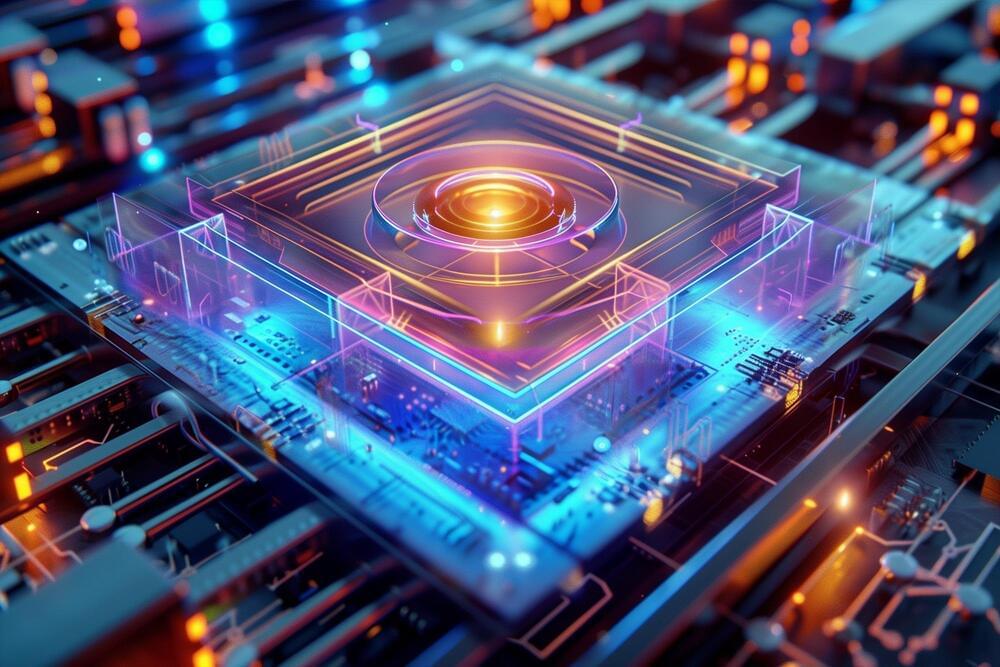
Researchers have developed a promising new optical memory technology using rare earth elements and quantum defects to enable denser and more efficient data storage.
This innovative approach utilizes wavelength multiplexing to increase bit density beyond traditional methods like CDs and DVDs, with theoretical models supporting the potential of near-field energy transfer for long-lasting data retention.
Introduction to Optical Memory Evolution.
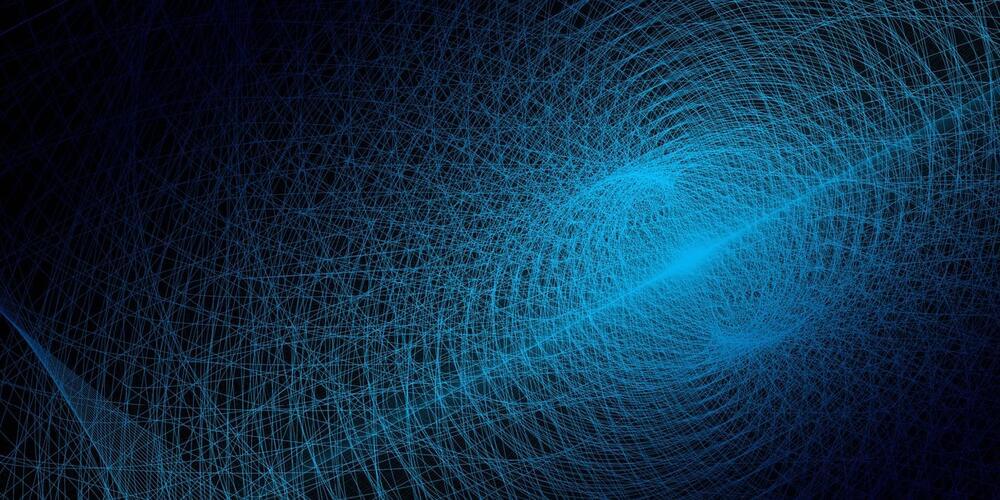
The Hubbard model is a studied model in condensed matter theory and a formidable quantum problem. A team of physicists used deep learning to condense this problem, which previously required 100,000 equations, into just four equations without sacrificing accuracy. The study, titled “Deep Learning the Functional Renormalization Group,” was published on September 21 in Physical Review Letters.
Dominique Di Sante is the lead author of this study. Since 2021, he holds the position of Assistant Professor (tenure track) at the Department of Physics and Astronomy, University of Bologna. At the same time, he is a Visiting Professor at the Center for Computational Quantum Physics (CCQ) at the Flatiron Institute, New York, as part of a Marie Sklodowska-Curie Actions (MSCA) grant that encourages, among other things, the mobility of researchers.
He and colleagues at the Flatiron Institute and other international researchers conducted the study, which has the potential to revolutionize the way scientists study systems containing many interacting electrons. In addition, if they can adapt the method to other problems, the approach could help design materials with desirable properties, such as superconductivity, or contribute to clean energy production.
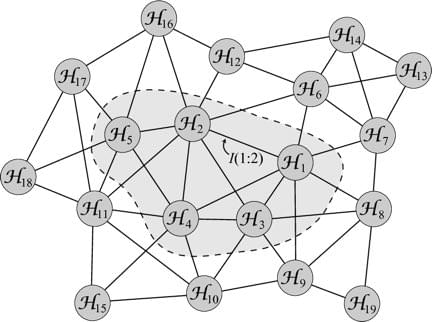
Planck length and Planck time and quantum foam.
Space Emerging from Quantum.
The other day I was amused to find a quote from Einstein, in 1936, about how hard it would be to quantize gravity: “like an attempt to breathe in empty space.” Eight decades later, I think we can still agree that it’s hard.
So here is a possibility worth considering: rather than quantizing gravity, maybe we should try to gravitize quantum mechanics. Or, more accurately but less evocatively, “find gravity inside quantum mechanics.” Rather than starting with some essentially classical view of gravity and “quantizing” it, we might imagine starting with a quantum view of reality from the start, and find the ordinary three-dimensional space in which we live somehow emerging from quantum information. That’s the project that ChunJun (Charles) Cao, Spyridon (Spiros) Michalakis, and I take a few tentative steps toward in a new paper.
We human beings, even those who have been studying quantum mechanics for a long time, still think in terms of a classical concepts. Positions, momenta, particles, fields, space itself. Quantum mechanics tells a different story. The quantum state of the universe is not a collection of things distributed through space, but something called a wave function. The wave function gives us a way of calculating the outcomes of measurements: whenever we measure an observable quantity like the position or momentum or spin of a particle, the wave function has a value for every possible outcome, and the probability of obtaining that outcome is given by the wave function squared. Indeed, that’s typically how we construct wave functions in practice. Start with some classical-sounding notion like “the position of a particle” or “the amplitude of a field,” and to each possible value we attach a complex number.
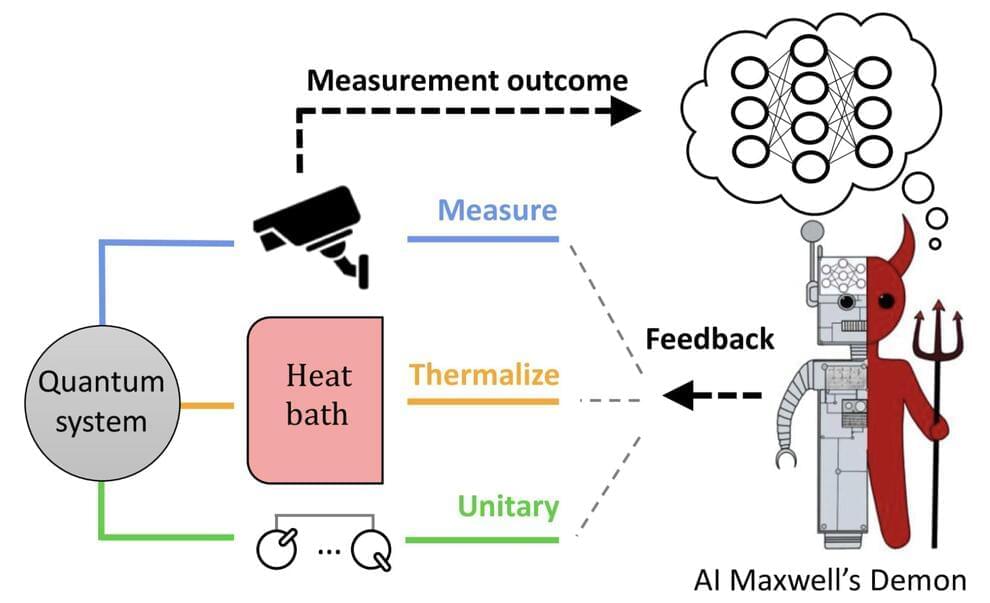
I have my own introduction quantum mechanics course that you can check out on Brilliant! First 30 days are free and 20% off the annual premium subscription when you use our link ➜ https://brilliant.org/sabine.
Physicists are obsessed with black holes, but we still don’t know what’s going on inside of them. One idea is that black holes do not truly exist, but instead they are big quantum objects that have been called fuzzballs or frozen stars. This idea has a big problem. Let’s take a look.
This video comes with a quiz which you can take here: https://quizwithit.com/start_thequiz/.…
Paper: https://journals.aps.org/prd/abstract…
🤓 Check out my new quiz app ➜ http://quizwithit.com/
💌 Support me on Donorbox ➜ https://donorbox.org/swtg.
📝 Transcripts and written news on Substack ➜ https://sciencewtg.substack.com/
👉 Transcript with links to references on Patreon ➜ / sabine.
📩 Free weekly science newsletter ➜ https://sabinehossenfelder.com/newsle…
👂 Audio only podcast ➜ https://open.spotify.com/show/0MkNfXl…
🔗 Join this channel to get access to perks ➜
/ @sabinehossenfelder.
🖼️ On instagram ➜ / sciencewtg.
#science #sciencenews #physics #space